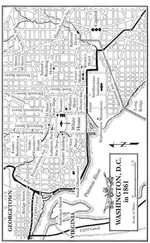John Ashton - Gossip in the First Decade of Victoria's Reign
Здесь есть возможность читать онлайн «John Ashton - Gossip in the First Decade of Victoria's Reign» — ознакомительный отрывок электронной книги совершенно бесплатно, а после прочтения отрывка купить полную версию. В некоторых случаях можно слушать аудио, скачать через торрент в формате fb2 и присутствует краткое содержание. ISBN: , Издательство: Иностранный паблик, Жанр: foreign_antique, foreign_prose, на английском языке. Описание произведения, (предисловие) а так же отзывы посетителей доступны на портале библиотеки ЛибКат.
- Название:Gossip in the First Decade of Victoria's Reign
- Автор:
- Издательство:Иностранный паблик
- Жанр:
- Год:неизвестен
- ISBN:http://www.gutenberg.org/ebooks/30665
- Рейтинг книги:3 / 5. Голосов: 1
-
Избранное:Добавить в избранное
- Отзывы:
-
Ваша оценка:
- 60
- 1
- 2
- 3
- 4
- 5
Gossip in the First Decade of Victoria's Reign: краткое содержание, описание и аннотация
Предлагаем к чтению аннотацию, описание, краткое содержание или предисловие (зависит от того, что написал сам автор книги «Gossip in the First Decade of Victoria's Reign»). Если вы не нашли необходимую информацию о книге — напишите в комментариях, мы постараемся отыскать её.
Gossip in the First Decade of Victoria's Reign — читать онлайн ознакомительный отрывок
Ниже представлен текст книги, разбитый по страницам. Система сохранения места последней прочитанной страницы, позволяет с удобством читать онлайн бесплатно книгу «Gossip in the First Decade of Victoria's Reign», без необходимости каждый раз заново искать на чём Вы остановились. Поставьте закладку, и сможете в любой момент перейти на страницу, на которой закончили чтение.
Интервал:
Закладка:
Having dutifully chronicled the doings of Royalty, let us do the same by meaner folk. On 24th June, Mr. Moses Montefiore, the celebrated Jewish philanthropist, who lived over one hundred years, was elected Sheriff of London, and, on the 9th Nov. following, he received the honour of Knighthood. He was the first Jew who ever served the office of Sheriff, or who had been made a Knight, in England.
Of course, there were no Board Schools in those days, and education was somewhat lax, but it will do no harm to note a piece of orthography, which will show the standard at which the middle lower class had then arrived. It is copied from The Times of 29 June, 1837. “( From an Evening Paper ) – Last autumn, Mrs. C-, of London, during a visit to – House, in the West of Scotland, called one day, along with some other ladies, in the family carriage, at the Golden Arms Inn, of a sea bathing place on the coast, and stopped for about an hour. Some time after the party had returned to D- House, Mrs. C- discovered that she had lost a very fine boa, which she supposed she must have left at the Inn. On enquiry, no trace of the boa could be found; but, about two months after Mrs. C-’s return to London, she received a parcel with a boa somewhat torn, accompanied by the accompanying ( sic ) epistle, which we give as rather a curiosity of its kind: —
“Golden Arms Inn – 29 Oct., 1836.“Mrs. C-, London,
“Madum, – I was sorry to heer that when you lost your Bowa in my huse, that the Bowa was stole by my sarvant lasses; and the sarvants at D- House spred a report against my huses karakter, which no person ever questioned afore. My wiffe, Peggy, was muckle vexed at the report, and sershed the trunks of all the lasses, but did not find your Bowa; she fund in Jenny McTavish’s kist half a pund of tea which Jenny had stole from my wiffes cupboard. Jenny denied taking your Bowa; but not doubting that you would tell a lee, and as Jenny tuke the tea, my wife thocht she must have taken your Bowa too, so I turned off Jeny for your satisfaction. She went home to her mithers house in – , and four Sundays after, wha should be cocken in the breist of the laft, all set round with ribbons in her heed, but Miss Jeny with your Bowa on her shoulders, like a sow with a saddle on its back. I stopped her coming out of the kirk. So So, Miss Jeny (says I) hae ye stumped the cow of her tale, or is this the ladies Bowa ye have on your sholders? The brazen faced woman had the impudence to deny the Bowa was yours, and said her sweetheart had bot it for her in a secondhand shop in the Salt Market of Glasgow. But I cut matters short wi’ Jeny; I een, as if by your authority, tuke the law in my own hand, and tore the Bowa from her sholders; it was torn a little in the scuffle wi’ Jeny and me afore the congregation in the kirk yard, but I carried it off in spite of her, and now send it to you, hopping you will put a letter in the newspaper of Lundon cleering the karacter of me and my wiffe Peggy, and my Inn of the Golden Arms. As for Miss Jeny ye may mak her as black as auld nick, for over and above Peggies half pund of tea, and your Bowa, Jeny (I hae good reason to believe) is no better than she should be. I am, Madum, your vera humbel sarvint,
“John – .”It will hardly be credited that at the commencement of 1837 there was only one railway running out of London, and that was the Greenwich railway, which, however, only went as far as Deptford, where it deposited its passengers in the midst of market gardens, leaving them to walk or ride to Greenwich. But there were several running in the midlands (six railways in all England), and what was then called “The Grand Junction Railway,” from Liverpool to Birmingham, was opened on the 4th July of this year. Cognate with railways is the practical working of the Electric Telegraph, now so necessary to their being. On 12 June, 1837, a patent was granted (No. 7390) to William Fothergill Cooke, of Breeds Place, Hastings, and Charles Wheatstone, of Conduit Street, Hanover Square, for their invention of “Improvements in giving signals and sounding alarums at distant places by means of electric currents transmitted through metallic circuits.” This hitherto scientific toy was first tried on 25 July by permission of the London and North Western Railway (then in progress) between Euston and Camden Town stations, and its successful operation was witnessed with delight by Fox and R. Stephenson, amongst many others.
A great feature in this year was the “Tom and Jerryism” (so called from Pierce Egan’s “Life in London,” 1821) that existed, especially among the upper class of young men. Foremost of all was the Marquis of Waterford, whose delight was in the company of prize fighters, et hoc genus omne , and whose idea of amusement consisted in visiting the lowest public houses, and treating everybody with liquor, even pails full of gin being distributed to whoever would partake of it – being never so happy as when the debauch ended in a fight. Knocker wrenching and similar pranks were his delight, and Punch , at the very commencement of vol. i., gives a suggestion for a monument to him. His pranks would fill a volume, and in August of this year (during a yachting trip), whilst at Bergen, he received a blow on the head from a stalwart watchman that nearly killed him.
Here is a specimen police case. Times , 10 July , 1837:
Bow Street. – On Saturday (8th July) three persons were brought before Mr. Minshull, charged with twisting knockers off hall doors, assaulting the police, and other disorderly conduct; and, it having been rumoured that one of the parties charged was the Marquis of Waterford, a great crowd of persons assembled in front of the Office to catch a glimpse of his Lordship. It proved, however, that the gentleman alluded to was not the noble Marquis himself, but his brother, Lord William Beresford, who gave the name of Charles Ferguson. Two other persons were placed in the dock besides his Lordship, one of whom gave the name of Edward Hammersley, of 41, St. James’s Street, and the other, who was equipped in the garb of a waterman, said his name was George Elliott, and that he was his Lordship’s coxswain.
William Dodds, a police constable of the E division, No. 9, then stated that he was on duty in Museum Street, between 1 and 2, on the previous night, when he saw the two gentlemen at the bar go up to the house, No. 49, and wrench the knocker from the door. Witness expostulated with them, and, seeing another knocker in the hand of the prisoner Elliott, he took him by the collar, upon which the prisoner Hammersley dropped the knocker which he had just carried off. The prisoner Ferguson then came up, and said, “It’s all right, old boy,” and offered him money, which witness refused to take. The two gentlemen then ran away, but were soon apprehended, witness still retaining hold of Elliott. They were then conveyed to the police station, where Ferguson refused to be searched, declaring that he would not submit to such a rascally degradation, and, having said so, he struck witness. The prisoners were then locked up.
Mr. William Gibson, of 49, Museum Street, proved that one of the knockers produced belonged to him, and had been wrenched off his street door.
Ferguson, in his defence, said he had been up the river on a boating excursion, and had taken “rather too much wine.” The other two prisoners also pleaded having taken a drop too much.
Mr. Minshull observed that there were two charges against Ferguson, whom he should consider as the principal offender, and should fine him £5 for unlawful possession of one of the knockers, and £5 for assaulting the police constable in the execution of his duty. He should not fine the other two.
Ferguson said he had no objection to pay £5 for the knocker, but, as he denied the assault, he should appeal against the fine.
Читать дальшеИнтервал:
Закладка:
Похожие книги на «Gossip in the First Decade of Victoria's Reign»
Представляем Вашему вниманию похожие книги на «Gossip in the First Decade of Victoria's Reign» списком для выбора. Мы отобрали схожую по названию и смыслу литературу в надежде предоставить читателям больше вариантов отыскать новые, интересные, ещё непрочитанные произведения.
Обсуждение, отзывы о книге «Gossip in the First Decade of Victoria's Reign» и просто собственные мнения читателей. Оставьте ваши комментарии, напишите, что Вы думаете о произведении, его смысле или главных героях. Укажите что конкретно понравилось, а что нет, и почему Вы так считаете.












